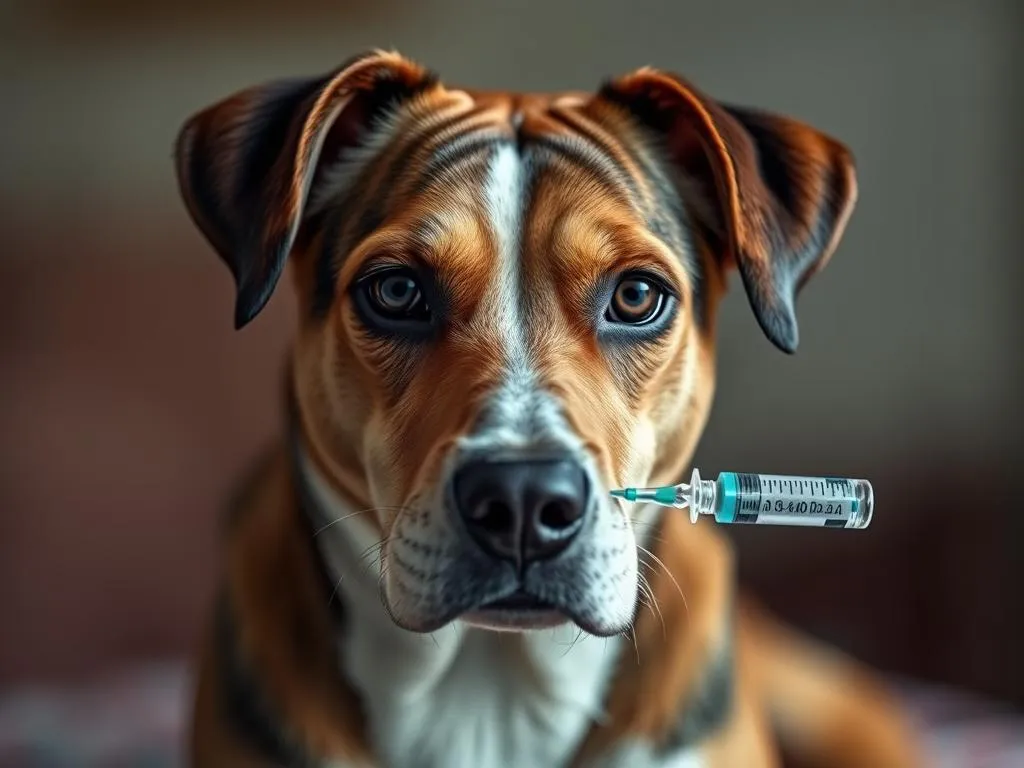
Introduction
Leptospirosis is a serious bacterial infection that can affect dogs, leading to severe health complications. Caused by the bacteria Leptospira spp., it poses a risk not only to dogs but also to humans and other animals. The disease can lead to kidney damage, liver failure, respiratory issues, and even death if not treated promptly. Given the potential severity of leptospirosis, vaccination is crucial in preventing this disease.
The lepto vaccine for dogs is a preventive measure that can help protect our furry friends from this dangerous infection. Understanding how the vaccine works, who should receive it, and the potential side effects are essential for any responsible pet owner.
Understanding Leptospirosis
What is Leptospirosis?
Leptospirosis is a zoonotic disease caused by various species of the Leptospira bacteria. This disease is prevalent worldwide and can affect a range of animals, including dogs, wildlife, and livestock. Dogs can contract the bacteria through exposure to contaminated water, soil, or infected animals, making it essential to be aware of the risks, especially in certain environments.
Symptoms of Leptospirosis in Dogs
Symptoms of leptospirosis in dogs can vary from mild to severe. Some of the common signs to watch for include:
- Fever
- Vomiting
- Lethargy
- Jaundice (yellowing of the skin and eyes)
- Increased thirst and urination
- Abdominal pain
In cases of severe leptospirosis, dogs may exhibit signs of kidney failure, such as decreased urine production, swelling, and potential seizures. Recognizing these symptoms early can make a significant difference in the treatment outcome.
Transmission and Risk Factors
Leptospirosis spreads through direct contact with the urine of infected animals or indirectly through contaminated water and soil. High-risk environments include:
- Standing water (e.g., ponds, puddles)
- Hiking trails and wooded areas
- Dog parks where other animals might have urinated
Certain breeds, such as hunting or working dogs, are at a higher risk due to their exposure to potential carriers and contaminated environments. Dogs that frequently swim in lakes or rivers or have access to muddy areas should be monitored closely.
The Lepto Vaccine
What is the Lepto Vaccine?
The lepto vaccine for dogs is designed to protect against specific strains of the Leptospira bacteria. It works by stimulating the dog’s immune system to recognize and fight off these bacteria if the dog is exposed in the future.
Two types of lepto vaccines are available:
- Monovalent vaccines, which protect against a single strain of Leptospira.
- Multivalent vaccines, which provide protection against multiple strains, offering broader coverage.
Choosing the right vaccine depends on various factors, including the specific risks your dog faces based on lifestyle and environment.
Who Should Get Vaccinated?
Not all dogs need the lepto vaccine, but certain breeds and lifestyles may benefit significantly from it. For example:
- Hunting and working dogs that spend time outdoors in high-risk areas.
- Dogs that swim in lakes or rivers.
- Dogs living in urban areas with known leptospirosis outbreaks.
Age is also a consideration; puppies can receive their first vaccination as early as 12 weeks old, followed by booster shots as recommended by the veterinarian. Older dogs can also receive the vaccine, but it’s essential to evaluate their overall health and any underlying conditions.
Vaccine Schedule
The typical vaccination schedule for the lepto vaccine for dogs includes:
- Initial vaccination: Usually given at 12-16 weeks of age.
- Booster shots: Administered annually or as recommended by the veterinarian.
Following your veterinarian’s recommendations for the vaccination schedule is crucial to ensure your dog receives optimal protection against leptospirosis.
Benefits of the Lepto Vaccine
Disease Prevention
The primary benefit of the lepto vaccine for dogs is its effectiveness in preventing leptospirosis. By vaccinating, you significantly reduce the chance of your dog contracting this serious disease, potentially avoiding the need for extensive medical treatment.
Overall Health Benefits
Vaccination can contribute to your dog’s overall health and well-being. A healthy dog is more likely to be active, happy, and free from the complications associated with leptospirosis. Preventive care, including vaccines, plays a vital role in maintaining a long and healthy life for your pet.
Peace of Mind for Pet Owners
Knowing that your dog is protected against leptospirosis can provide emotional reassurance. The potential financial burden of treating a serious illness can be overwhelming; therefore, investing in vaccination is a proactive step towards safeguarding your pet’s health.
Potential Side Effects and Concerns
Common Side Effects
Like any vaccine, the lepto vaccine for dogs can cause side effects. Most reactions are mild and temporary, including:
- Mild fever
- Lethargy
- Soreness or swelling at the injection site
These side effects typically resolve within a day or two. Monitoring your dog closely after vaccination can help ensure they recover quickly.
Serious Reactions
Although rare, serious reactions can occur. These may include:
- Anaphylaxis, a severe allergic reaction that requires immediate veterinary attention.
- Severe vomiting or diarrhea.
It’s essential to be aware of these risks and to discuss any concerns with your veterinarian before vaccination.
Consulting with Your Veterinarian
Before administering the lepto vaccine, consult with your veterinarian about your dog’s health history, lifestyle, and potential risks. This discussion can help determine if vaccination is the right choice for your dog and what type of vaccine would be most beneficial.
Frequently Asked Questions (FAQs)
Is the lepto vaccine safe for all dogs?
Generally, the lepto vaccine is safe for most dogs, including puppies and older dogs. However, dogs with preexisting health conditions or those undergoing treatment should be evaluated by a veterinarian to determine if vaccination is advisable.
How effective is the lepto vaccine?
The lepto vaccine is highly effective in preventing leptospirosis; however, its efficacy can vary based on the specific strains and the individual dog’s health. Annual boosters help maintain protection levels.
Can my dog still get leptospirosis after vaccination?
While the vaccine significantly reduces the risk of infection, breakthrough cases can occur, although they are rare. Vaccinated dogs may experience milder symptoms if they do contract the disease.
What should I do if my dog shows side effects?
If your dog exhibits side effects after vaccination, monitor them closely. Contact your veterinarian if they show severe reactions such as difficulty breathing, excessive vomiting, or persistent lethargy.
Conclusion
The lepto vaccine for dogs is an essential component of preventive health care for our pets. With the potential severity of leptospirosis, understanding the benefits of vaccination is crucial for all dog owners. Consult with your veterinarian to determine the best vaccination plan for your dog, ensuring they remain healthy and protected against preventable diseases. Keeping your dog healthy is a journey, and vaccination is a key step in that process.









